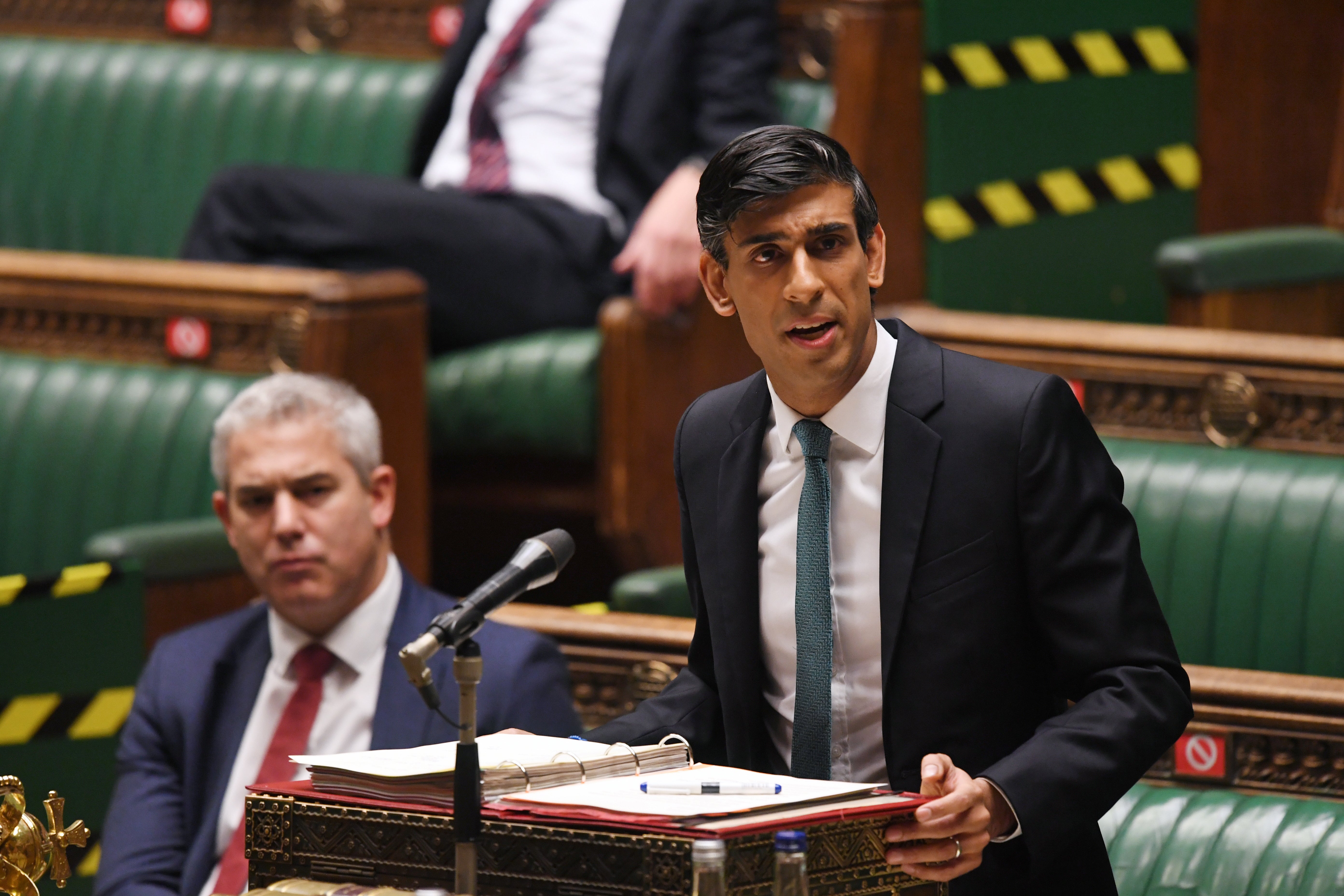Tax rises and spending cuts after pandemic could be twice as high as predicted, experts warn
Rishi Sunak may have to find savings totalling £40bn by time of the next election

The level of tax rises and spending cuts which Rishi Sunak will need to balance the nation’s books after the coronavirus crisis could be twice as high as official forecasts suggest, experts have warned.
The government’s Office for Budget Responsibility yesterday said that the unprecedented spending on the pandemic will force state borrowing up to around £100bn by 2024-25, leaving the chancellor needing a “fiscal tightening” of around 1 per cent of national income – around £20bn – to get debt under control.
But an analysis by the Institute for Fiscal Studies today estimated that the figure will be at least 2 per cent, leaving Mr Sunak needing to find £40bn or more in savings or additional revenues if he wants to stick to his promise to deliver current budget balance.
The extra financial burden is expected because of a number of likely costs which went unmentioned in Mr Sunak’s spending review on Wednesday, said IFS director Paul Johnson.
Despite committing £55bn to Covid spending in 2021, the chancellor allocated “precisely zero” for subsequent years, said the IFS chief, adding: “I hope he is right that we will no longer need to spend anything at all on test and trace, PPE and the rest, but I wouldn’t bet on it.”
Mr Johnson said he would be “most surprised” if the chancellor was able to deliver the savings of £10bn on non-Covid public service spending he has announced for next year, rising to £13bn in the following years, given continuing demand for services.
Sticking to these plans would mean “another bout of austerity” for spending areas like local government, police and transport, whose budgets have already been cut by 20 per cent in the decade following the 2008 financial crisis, he said.
And he said he expected Mr Sunak eventually to succumb to pressure to extend the £20-a-week emergency uplift to welfare payments, rather than withdrawing it when it expires next April as planned at a cost of £1,040 a year to some of the country’s poorest families.
Mr Johnson said: “Put these pressures together and my central scenario would have borrowing at least another 1 per cent of national income higher in 2024-25 and subsequently, even given the perhaps relatively benign central economic scenario outlined by the OBR.
“In that case, if the chancellor did want to aim for current budget balance he’d eventually need a 2 per cent of national income fiscal tightening – about £40bn in today’s terms.”
Mr Johnson said that tax rises were likely to start biting in the spring, with households expected to face increases averaging £70 in their annual council tax, after the chancellor offered town halls the freedom to impose a 5 per cent hike to make up for cuts in central funding.
He said the controversial freeze on public sector pay outside the NHS would raise only £1-2bn next year, making it “a big fight” for the chancellor to pick over not very much money.
Perverse outcomes from the decision mean that the public sector workers hardest hit by the freeze will be those who are least well-paid compared to the private sector – graduates in London and the southeast.
And the decision means that teachers working half time on £20,000 each will each get a £250 pay rise, while a full-time teacher doing the same job for £40,000 will get nothing, said Mr Johnson.
“This is no way either to spend public money or to treat public sector workers,” he said.
Meanwhile, Mr Sunak’s review will mean that, once again, “pensions will rise much faster than earnings, let alone working age benefits”, with total spending on the state pension due to rise by 6 per cent in real terms – or £6bn – by 2025.
Join our commenting forum
Join thought-provoking conversations, follow other Independent readers and see their replies
Comments



Bookmark popover
Removed from bookmarks